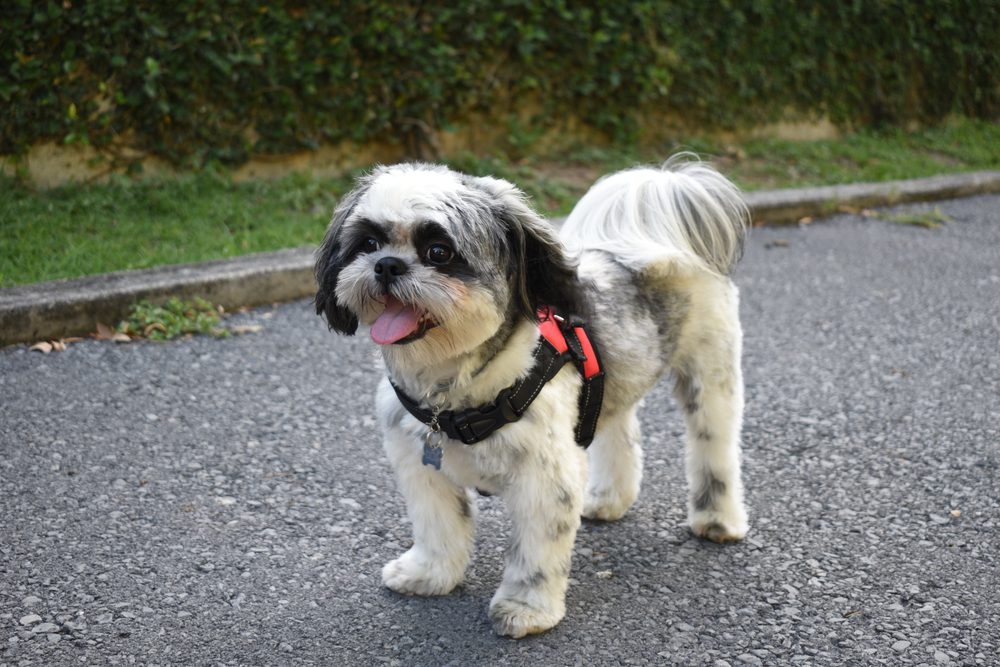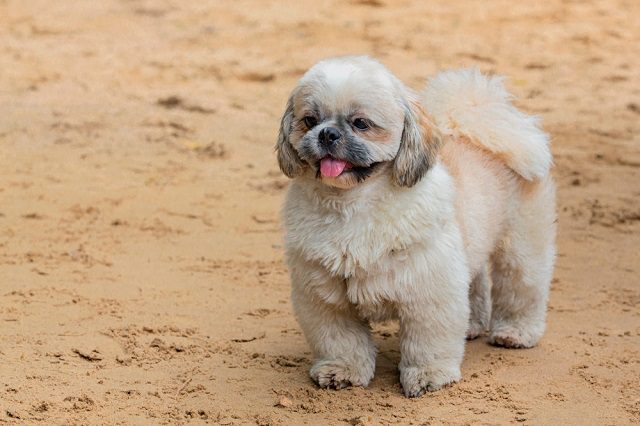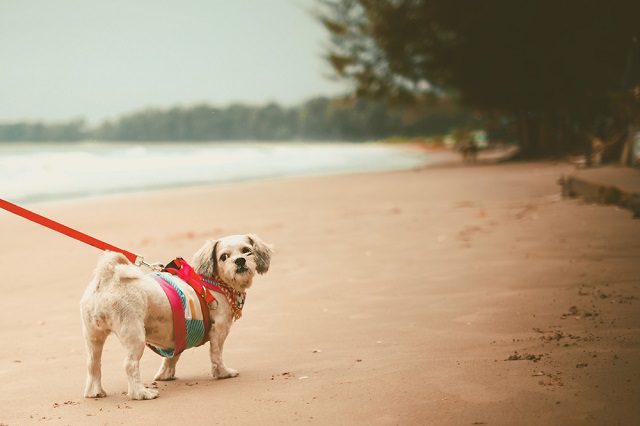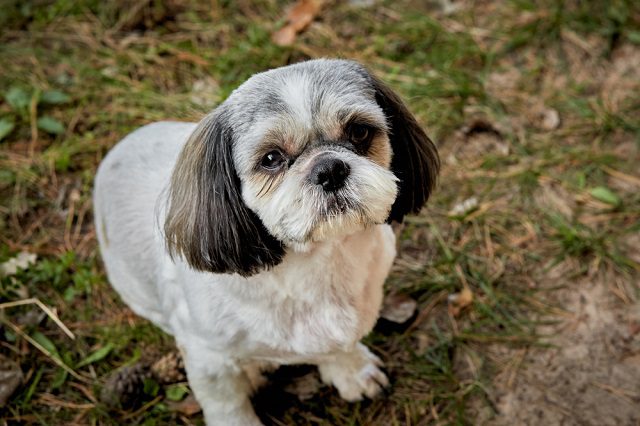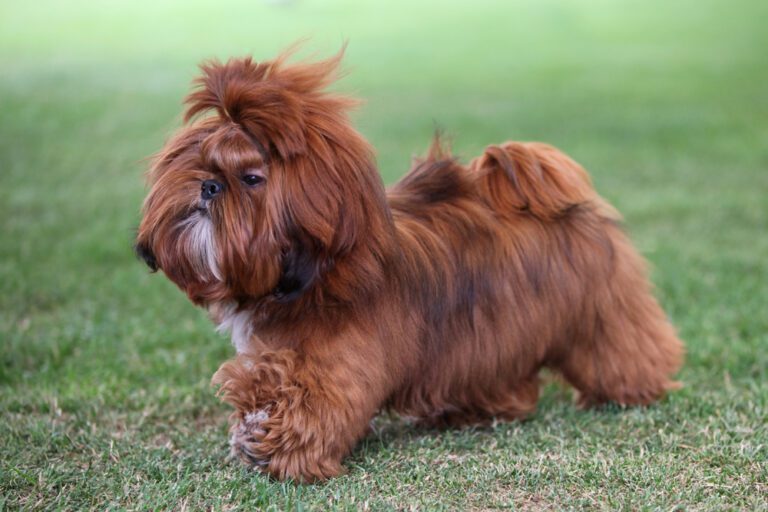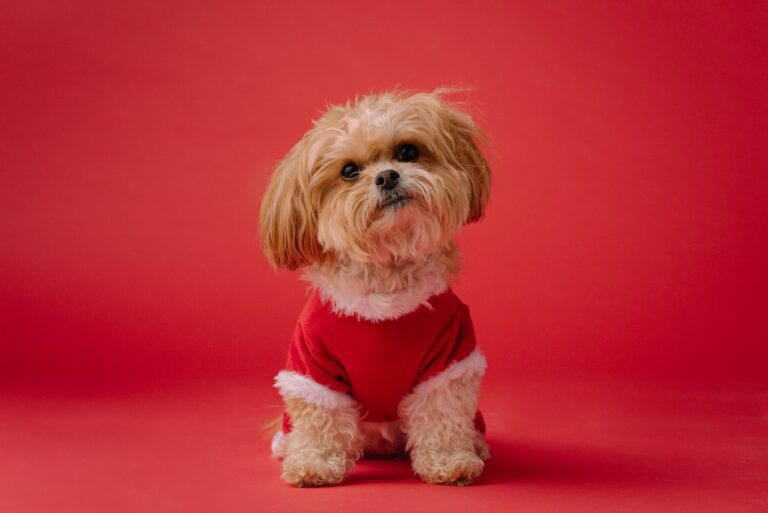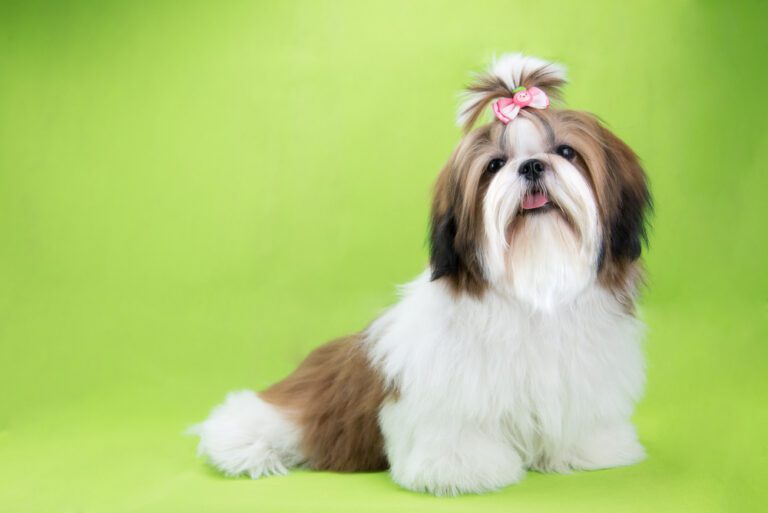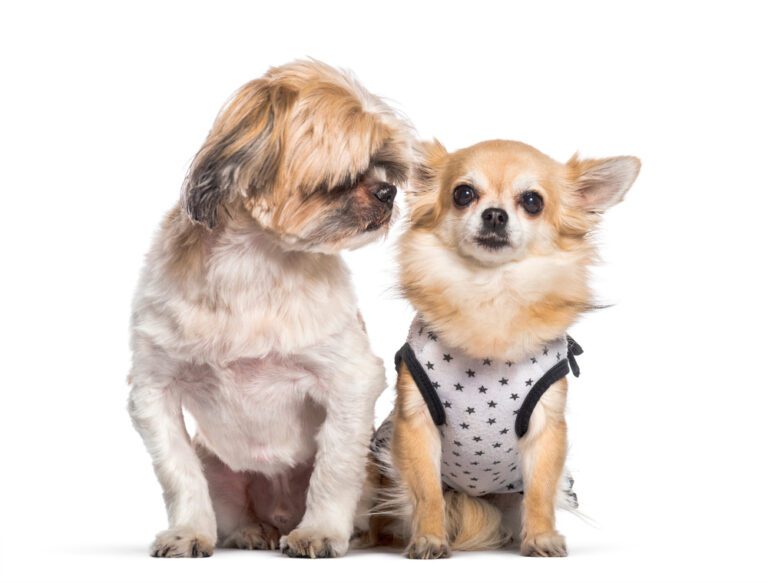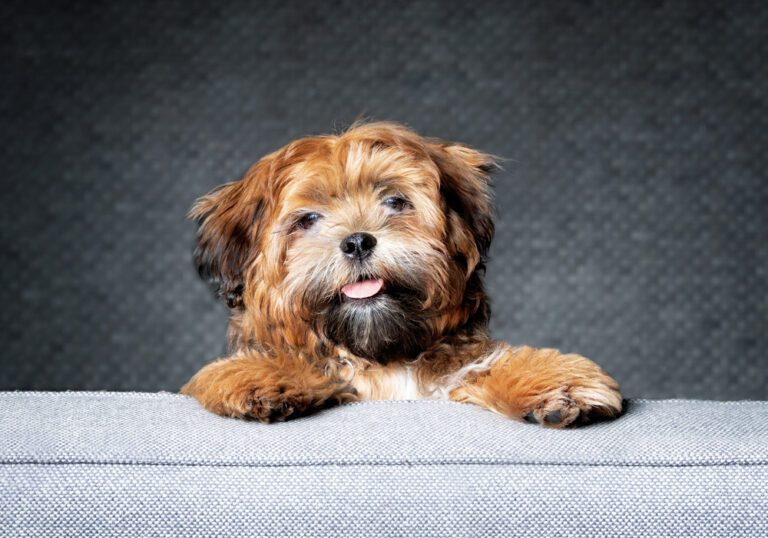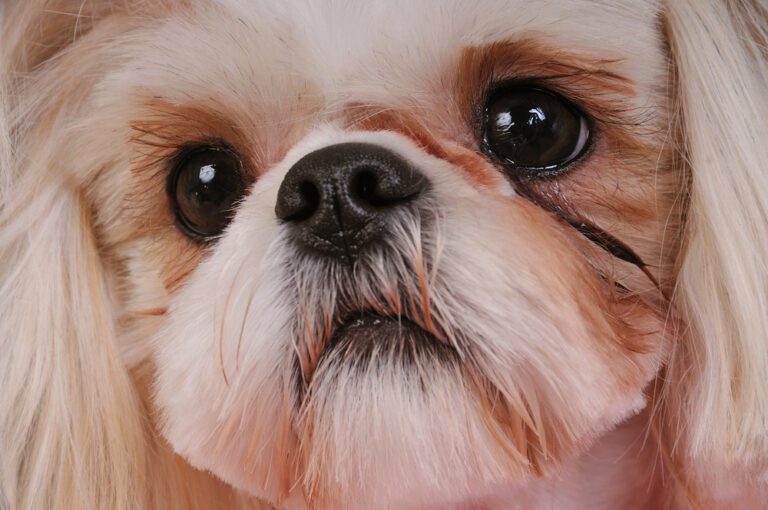Unveil the Charm of a Short-Haired Shih Tzu
Shih Tzus are known for their friendly personality and beautiful, flowing coats. They originated from Tibet and were royal lap warmers, but they are still very good at snuggling today! Their name, “Shih Tzu,” means “lion dog” in Chinese, and they carry a proud, loving presence wherever they go.
Unlike their long-haired siblings, short-haired Shih Tzus have a distinct appearance with several practical advantages. Here’s what sets them apart:
- Less Grooming Hassles: Their shorter coat is easier to maintain. You won’t spend as much time brushing, meaning more time playing and cuddling.
- Heat Tolerance: They handle warm weather better, making them great companions for outdoor activities in the summer.
- Visibility of Expressions: It’s easier to see their endearing facial expressions without hair covering their eyes. This can strengthen bonding, as you can better read their moods and feelings.
These key differences make short-haired Shih Tzus a unique breed variant. They blend the classic charm of a Shih Tzu with a practical twist that fits well into many lifestyles.
Unveil the Charm of a Short-Haired Shih Tzu!
Physical Characteristics
- Coat Type: The short-haired Shih Tzu sports a sleek, less dense coat than its long-haired counterpart. This short coat is not just cute but also practical. It stays tidy with minimal effort, making these pups a great choice for busy families.
- Color Variations: Like traditional Shih Tzu, the short-haired version comes in various colors. You might see them in black, white, brown, or exciting colors. Each one has its special look!
- Grooming Needs: Short-haired Shih Tzus are low maintenance. They need regular brushing, but not as often as the long-haired type. A good brush a few times a week keeps their coat shiny and healthy. Also, they need the usual grooming, like nail trimming and ear cleaning, but their short hair makes the whole process quicker and simpler.
Temperament and Personality Traits
- Playful and Friendly: Short-haired Shih Tzu is as playful and loving as any other Shih Tzu. They adore being around people and are excellent at making friends. Their playful nature shines when they’re around children or other pets, making them perfect family dogs.
- Adaptable: These dogs adapt well to different living situations. Whether in a small apartment or a large house with a yard, they’re happy as long as they’re with their loved ones.
- Loyal Companions: Loyalty is their middle name. Short-haired Shih Tzus are known for their devotion. They follow their owners around, offering comfort and joy. Their presence can brighten any room, helping everyone feel more at home.
Short-haired Shih Tzus pack all the love and personality of the traditional Shih Tzu into a lower-maintenance package. Their charming looks and adaptable, friendly nature make them an ideal pet for many families.
The Origins of the Short-Haired Shih Tzu
The short-haired Shih Tzu is not as common as the long-haired variety. This unique trait can appear when two Shih Tzus with recessive genes for short hair have puppies. It’s like rolling dice; sometimes, you get a surprise!
Genetic Explanation
Every dog’s coat length is determined by its genes. In Shih Tzus, the gene for long hair is dominant. This means it’s the more common trait. However, when both parent dogs carry the recessive gene for short hair, there’s a chance their puppies will have short coats. This is rare because most Shih Tzus are bred for their traditional long, flowing coats.
Rarity of the Coat Type
Because breeding usually focuses on the long-haired look, finding a short-haired Shih Tzu can be rare. Breeders might not even know they have the genes for short hair in their breeding lines until a short-haired puppy appears unexpectedly. This rarity makes the short-haired Shih Tzu a special find, adding to their charm and appeal.
These genetic quirks help explain why short-haired Shih Tzus are so special. They are a delightful rarity in Shih Tzus, bringing a unique twist to an already beloved breed.
Care and Maintenance of Short-Haired Shih Tzus
Grooming Essentials
- Brush: Even though they have short hair, a soft bristle brush or a rubber grooming mitt will keep their coat shiny and help reduce shedding.
- Shampoo: Use a gentle dog shampoo for bath time. It doesn’t need to be very frequent—just once a month or when they get dirty.
- Ear Cleaner: Regular cleaning with a vet-approved ear cleaner can prevent infections.
Grooming Tips:
- Regular Brushing: Brush your short-haired Shih Tzu several times weekly to remove dirt and loose hair.
- Keep the Ears Dry and Clean: Since Shih Tzus can have sensitive ears, make sure they are dry and clean to avoid infections.
- Nail Trims: Short-haired or not, their nails need regular trimming to prevent walking discomfort.
Dental Care
- Teeth Brushing: Regular brushing of your Shih Tzu’s teeth is crucial to preventing dental diseases common in smaller breeds. Aim to brush their teeth two to three times a week using dog-specific toothpaste.
- Chew Toys: Chew toys can help keep their teeth clean and strong and satisfy their natural chewing instinct.
Eye Care
- Regular Cleaning: Shih Tzus are prone to tear staining; even short-haired variants can experience this. Gently wipe around their eyes with a soft, damp cloth daily to prevent buildup and staining.
- Eye Checks: During grooming, check their eyes for any signs of redness or irritation, which can indicate allergies or infections.
Skin Care
- Moisturizing: Shorter coats mean less natural protection against environmental factors. Use a vet-recommended moisturizer if you notice dry skin, especially in colder months.
- Regular Checks: While grooming, check for any signs of skin irritation, bumps, or parasites. Early detection can prevent more serious issues.
Paw Care
- Paw Checks: Shih Tzus are playful and can sometimes injure their paw pads or get objects stuck between their toes, so their paws should be regularly checked for debris or injuries.
- Paw Balm: A protective balm can help keep their pads soft and prevent cracking, especially in harsh weather conditions.
Proper grooming goes beyond keeping your Shih Tzu looking good—it’s about maintaining their overall health. Each step in their grooming routine provides an opportunity to spot early signs of health issues, ensuring that your pet stays as healthy as they are adorable.
Health Considerations
Benefits of Shorter Hair:
- Cooler in Summer: These dogs stay cooler in hot weather, which makes them more comfortable during summer.
- Less Matting and Skin Issues: Short hair mats less and is easier to keep clean, reducing the risk of skin infections.
Health Concerns:
- Sunburn: Short-haired Shih Tzus can be more prone to sunburn. It’s important to provide shade and consider using pet-safe sunscreen on exposed skin.
- Allergies: Without long hair to protect their skin, they might be more exposed to allergens. Look for signs of allergies, like scratching or red skin.
Taking good care of your short-haired Shih Tzu involves more than just brushing. Paying attention to their overall health, grooming them, and watching for any signs of discomfort will help your pet stay happy and healthy. Remember, every little bit of care you give them returns to you in their companionship and love.
Training and Socialization for Short-Haired Shih Tzus
Training Tips
- Consistency is Key: Whether your Shih Tzu has short or long hair, consistency remains crucial in training. Regular, short training sessions can help your Shih Tzu learn basic commands like sit, stay, and come. Use positive reinforcement, such as treats or praise, to reward good behavior.
- Focus on Gentle Handling: Due to their small size and somewhat delicate nature, gently handling your short-haired Shih Tzu during training is important. This approach builds trust and helps prevent fear-based responses during learning activities.
- Leash Training: Start leash training early. Like their long-haired counterparts, short-haired Shih Tzus can be energetic and curious. Training them to walk calmly on a leash will make outdoor activities more enjoyable and safer for both of you.
Socialization Needs
- Early Introduction: Introduce your short-haired Shih Tzu to various environments, sounds, people, and other animals early on. Early socialization helps them become well-adjusted adults. It’s crucial for preventing anxiety and fearfulness in new situations.
- Playdates and Parks: Regular visits to dog parks or playdates with other dogs can be beneficial. These interactions teach your Shih Tzu to behave around other animals and people. It’s also a great way for them to burn off some energy and make new friends.
- Interaction with Children: Teach children how to interact properly with your Shih Tzu. Children should learn to be gentle and recognize the signs when the dog needs space. Supervised interactions help prevent accidental injuries and help the dog and children learn mutual respect and affection.
- Stay Patient and Positive: Every dog learns at their own pace. If social situations seem overwhelming for your Shih Tzu, take a step back and go at a slower pace. Positive experiences are key to building a sociable and confident dog.
Training and socializing your short-haired Shih Tzu helps develop a well-behaved pet and enhances your bond. By focusing on these elements, you can ensure your furry friend grows up to be happy, healthy, and well-adjusted to various environments and situations.
Conclusion
Short-haired Shih Tzus combines the classic charm of the breed with the convenience of easier grooming. They adapt well to various living situations and thrive on companionship, making them great for families or individuals in any home. While their coat requires less maintenance, they need protection against skin issues and regular socialization to develop a well-rounded personality. If you’re prepared to handle their basic health care and commit to their social needs, a short-haired Shih Tzu can be a delightful and loving addition to your life.

